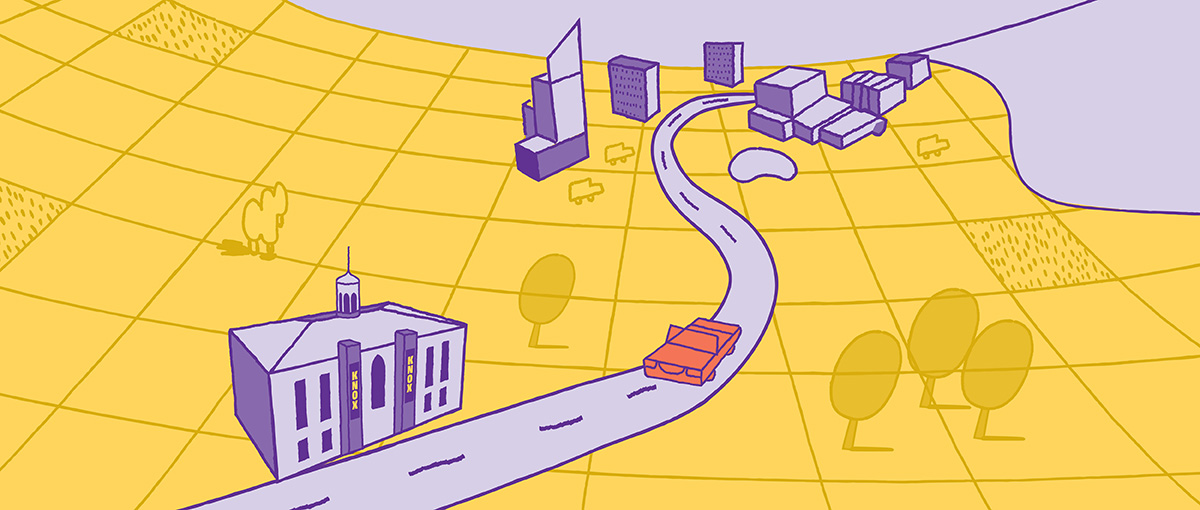

Saira Haider '10
Southern Ohio
Major in Physics, Minor in Environmental Science
Saira, an environmental scientist, is currently working with the U.S. Geological Survey to help restore the Everglades.
Could you describe some of your projects after Knox?
I spent a few years working various jobs, such as teaching in a high school with the TRIO Upward Bound Program, which is one of eight initiatives to help serve and assist low-income individuals, first-generation college students, and those with disabilities in their academic careers. I also spent time traveling across Latin America with Helen Bartlett ’10, a fellow Knox student, before I went to graduate school at Duke University. I pursued a master’s degree in environmental science, and a major part of the course was conducting research in Latin America. My research group worked with a for-profit organization called Counter Culture Coffee, which attempted to harvest coffee in a sustainable manner. The project that I worked on entailed comprehending the effects of climate change on coffee farmers in Latin America and how they can work towards improving their harvest. I gained experience in conducting research through various different forms, such as focus groups, which were extremely impactful throughout the course of the investigation. Currently, I work as an ecologist with the U.S. Geological Survey in Florida.
What do you do as an ecologist with the U.S. Geological Survey and how do you think Knox has helped you prepare for the role?
The U.S. Geological Survey is conducting research to help restore the Everglades, which have suffered several decades of degradation. The federal and state governments are currently working on restoring the landscape and biodiversity of the site. My role is to use quantitative ecological tools to predict models that describe the environment and the potential changes that can occur over time, thus helping make more informed decisions with regard to the environment. As a physics major, I have learned how to use the quantitative tools that are required for this job. It helps form a strong background in quantitative reasoning and understand the different aspects that are required to make models. Knox helped greatly because the research opportunities the college offers are phenomenal.
Through one of these platforms, the National Science Foundation-Research Experiences for Undergraduates (NSF-REU), I realized I did not want to spend my time working as a physicist. Because of Knox’s diverse array of classes, I had the opportunity to explore different options and ended up in ecology. Knox also had excellent mathematical software that helped develop my skills and ease the transition from high school to college. The professors there are also massive assets. Stuart Allison, Watson Bartlett Professor of Biology and Conservation, was a great inspiration for me during my time at Knox and I think he has been a fundamental part of my career journey. Peter Schwartzman, professor of environmental studies, was a massive aid through my years at Knox, especially because my minor in environmental science was self-designed. Both of these professors inspired my interest in ecology and it is thanks to them that I am here today.
What is one class that sticks out to you and helped you enhance your academic experience at Knox?
Apart from the classes with Allison and Schwartzman, one other class sticks with me, Environmental Racism with Burkhardt Distinguished Associate Professor of History Konrad Hamilton. The class was amazing—it talked about environmental justice and the disparate impacts of environmental policies on minority groups. We looked at the various factors that influenced those differences and how decisions made in different areas, such as health and wellness, would affect the community. I think, as a physics person who is more used to making decisions based on figures, this class opened doors to understanding the different social aspects of decision-making. I would highly recommend it.
What is a piece of advice you would give to current students?
I would say don’t focus too much on studying all the time. Obsessing over grades and your GPA is unhealthy and it will lead you to burnout. Knox has a great deal to do on campus, and I wish I had taken the time to explore and understand my opportunities better. That doesn't mean you shouldn’t study at all—it is important to find the right balance and understand how much is good for you. Remember to reach out for help because people are willing to help you. Make use of your professors. They are always open to chatting with you. Also, don’t be hesitant to explore different majors. Even though I studied physics, I ended up as an ecologist. Try new things. You never know what might end up enticing you. That is what is amazing about Knox, you have the ability to explore—do it.

